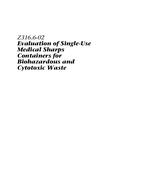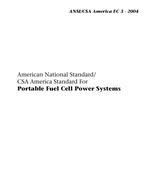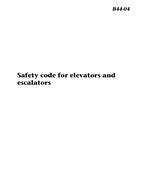Click here to purchase
Introduction
A recent survey found that three out of five workers suffering eye injuries wore no eye protection. Half of those who did use safety eyewear wore the wrong type.To be effective, eye protection must be properly selected for the job and fitted to the wearer.
Note: CAN/CSA-Z94.3 requires that prescription safety eyewear be fitted by a qualified professional (e.g., a licensed ophthalmic practitioner).
The first choice in preventing eye injuries is to design work procedures and equipment so that workers are not exposed to eye hazards. However, the total elimination of eye hazards from the workplace is often not possible, and other measures must be taken to control residual hazards so that they do not result in injuries to workers and others in the work zone. One such control measure is the wearing of personal protective equipment (such as protective eyewear). It is well recognized that the majority of eye injuries can be prevented by wearing appropriate protective eyewear and following basic safety rules.
The purpose of this user’s guide is to provide advice for the proper selection of eye protection in relation to the specific hazardous activity involved; not all hazards have been identified in this guide.
Any well-designed eye and face protection program should be part of an effective occupational health and safety management system. Specifications for such a management system can be found in CAN/CSA-Z1000, Occupational Health and Safety Management. This Standard is based on the Plan-Do-Check-Act model of safety management, and it lays out the basis for proper management of personal protective equipment as a necessary strategy for injury and illness prevention.
Product Details
- Published:
- 02/01/2009
- ISBN(s):
- 9781554910687
- Number of Pages:
- 32
- File Size:
- 1 file , 620 KB
- Product Code(s):
- 2419648, 2420296, 2020495


